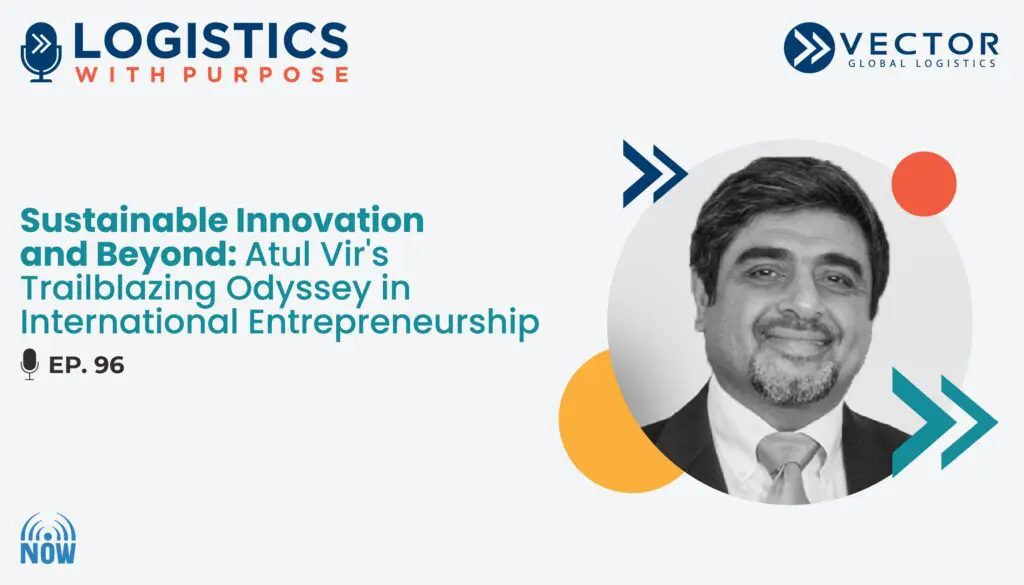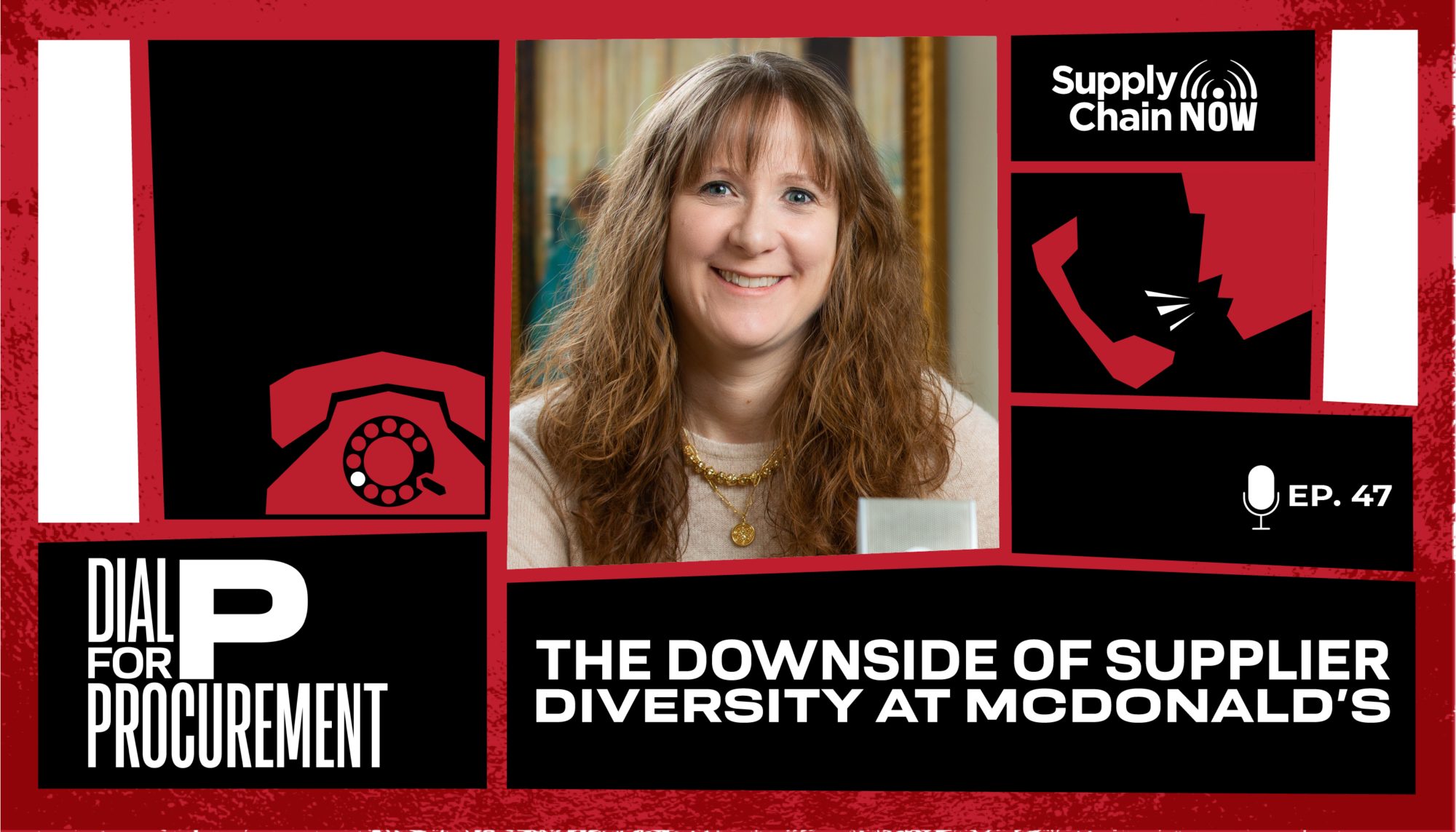Intro/Outro (00:01):
Welcome to Dial P for procurement, A show focused on today’s biggest spin supplier and contract management related business opportunities. Dial P investigates the nuanced and constantly evolving boundary of the procurement supply chain divide with a broadcast of engaged executives, providers, and thought leaders. Give us an hour and we’ll provide you with a new perspective on supply chain value. And now it’s time to dial P for procurement.
Kelly Barner (00:31):
Have you ever heard the expression, the road to hell is paved with good intentions? People mean well and they think they’re doing the right thing, but it doesn’t always work out that way. In reality, now, versions of that expression actually date back to 1670, which suggests to me that this is a part of the human condition and it’s not just human. We can see a lot of examples of this playing out in business. From my perspective, the road to hell being paved with good intentions comes down to two common challenges. One is where you have a good idea that’s conceived of by one person, but handed over to someone else for execution and something gets lost in that handoff. Another example is where you have an idea that works well as an individual effort, but when you try to scale it, everything falls apart and those good intentions get lost.
Kelly Barner (01:31):
Either one of those examples could easily be at play in a case of supplier diversity efforts gone wrong. In this case at McDonald’s. In this episode of Dial Pay, I’m going to review a federal court case, which is currently pending against McDonald’s, brought by Alan Media Group, which owns the Weather Channel, as well as 36 abc, cbs, and Fox Television Stations. We’re gonna look at those good intentions that McDonald’s supplier diversity program had at the outset and look at how they’re playing out in reality. And then finally, this is one of those where there is so much to learn, and so we’re gonna think about what some of the key takeaways are for companies, for procurement teams, and for supplier diversity professionals. But before I go any further, let me pause and introduce myself. I’m Kelly Barner. I’m the co-founder and managing Director of Buyers Meeting Point.
Kelly Barner (02:29):
I’m a partner at Art of Procurement and I’m your host for Dial P here on Supply Chain. Now, I’m constantly scanning the news for articles and stories to discuss things that are thought provoking, but which could easily escape people’s attention. In fact, I did not notice today’s story. It was shared with me by Nita Piano, the CEO of Bold Growth Agency, a professional matchmaking firm for corporations that wanna connect business opportunities with women of color who can fulfill them. Now, full disclosure, I’m on Nita’s Advisory board, but since this story doesn’t involve Nita or her agency or any of her customers in any way, we all just get to learn from it together. Dial P releases a new podcast episode or interview every Thursday, so be on the lookout for future episodes and don’t forget to check out past episodes as well. Before we get back to today’s topic, I have a quick favor to ask.
Kelly Barner (03:31):
A lot of work goes into making sure you find value in the time that we spend together. What I ask in return is that you find a way to engage. I know Dial P has listeners on all kinds of platforms and channels, so wherever you are, find a way to let us know that you’re listening. Let us know what you think about what you hear. You can give us a review on iTunes. You can give us a star rating on some of the other podcast platforms. You can share this post if you find it on LinkedIn or Twitter, or send the link directly to a colleague. I’m incredibly grateful for your interest and your attention for what we’re building here at Dial P. Now, to give you today’s story, first I’m gonna start by telling you a little bit about Byron Allen. He is the CEO and owner of Allen Media Group and one of their divisions, which is Entertainment Studios Networks.
Kelly Barner (04:27):
It’s good that he’s the ceo, but for our sake, the fact that he’s the owner is more important. Alan owns the company, which means that no matter how big they are, AMG is eligible to be certified as a minority-owned business. The company owns a number of channels, and so one of their primary sources of revenue is marketing. Moody’s estimates that about half of AMGs business revenue comes from advertising, and the company has a long history of cording Madison Avenue firms for commercials placed in TV shows on his channels. McDonald’s has a $1.6 billion annual advertising budget, and like most big consumer facing companies, they are actively interested in investing in diverse suppliers, and they’ve made several public commitments to that fact. CNN has reported that McDonald’s plans to increase their advertising with black owned companies from 2% to 5% by 2024. Another article, this one from USA Today, cite a similar commitment to increase investment in diverse owned partners, including black, Hispanic, Asian-Pacific American women, and LGBTQ own companies, and taking them from 4% to 10% of national advertising spend between 2021 and 2024.
Kelly Barner (05:52):
Now, the question is how that money gets managed and allocated. So supplier diversity is very important, but it’s extra important for McDonald’s because it’s also a good business move. Black Americans represent approximately 40% of McDonald’s US sales, which are about a hundred billion dollars. So quick math, on a typical year, we’re talking about $40 billion from black consumers of its 1.6 billion an advertising budget. McDonald’s currently spends less than 5 million each year on black owned media, which works out to be one third of a percent and less than half of what the CEO makes in his salary. McDonald’s breaks their advertising budget into a couple of different tiers. Their primary advertising tier is what they refer to as the general market. It constitutes the vast majority of their money in the typical year, and it basically means money that they’re trying to reach everyone with. Now, in order to hit some of their supplier diversity targets, they’ve created a separate African American tier, which has a small budget.
Kelly Barner (07:06):
Depending on who you ask, it may also have less favorable pricing and contract terms, but McDonald’s, as you might expect, doesn’t manage all of these smaller firms individually. They contract with a separate ad agency Borough Communications to manage their African American tier. Borough Communications was founded by Tom Burl, one of the first African Americans to work in the field of advertising. He’s retired out of the picture, but the business is now black woman owned with a majority ownership being held by McGee Williams osa, who is the current co ceo. Now, if you’ve done any work in supplier diversity, one thing that’s interesting about this is that because Bur communications is black owned and the firms that they’re directing this African American tier of funds to are black owned, you get a double tiered effect. So there’s tier one diversity spend with Borough Communications and Tier two diversity spend that Borough spends on their behalf with the actual black owned media companies.
Kelly Barner (08:12):
When AMG reached out to McDonald’s about becoming a marketing partner, they were assigned to the African American tier, even though they want to appeal and believe that they can appeal through the stations that they own to that general market. McDonald’s hasn’t advertised on the Weather Channel since Alan acquired the network in 2018, and although he is a black owned business, they have nationwide reach with general stations like the Weather Channel. Now, here’s where we get into the accusations represented by the lawsuit. What AMG alleges is that McDonald’s has created separate but unequal tracks for black owned media companies to earn, earn re advertising revenue with the company. In some ways, it might be an example of stereotyping. They’re assuming that because AMG is black owned, therefore this is the tier of spend where they can best serve McDonald’s and their customers. What Byron Allen is saying is, yes, we do happen to be a black owned business, but that doesn’t mean we wanna compete in that channel.
Kelly Barner (09:19):
We wanna compete for a piece of the general market pie. So he’s saying that they’re being deprived of advertising revenue that otherwise would’ve been paid to amg if McDonald’s treated the companies the same if AMG was white owned and they had an opportunity to bid for that general market, he’s making the case that that’s only not happening because it’s a black owned company. And so you get Entertainment Studios networks incorporated at all versus McDonald’s. McDonald’s refusal to contract with amg, which is the parent company of Entertainment Studios Networks, is being alleged as the result of racial stereotyping. They are suing McDonald’s for 10 billion for discrimination on the basis of race. In December of 2021, the case was dismissed. It was amended and then resubmitted. But there was a recent development on Friday, September 16th, 2022, McDonald’s was denied a motion to dismiss by Judge Fernando Alwin of the Al United States District Court for the Central District of California.
Kelly Barner (10:35):
Now, we know that the case will proceed to trial by jury in May of 2023. If nothing else changes, mental note, save that date. So let me pause here. There are so many facts in this case. So I wanna take you back through a really quick Reader’s Digest version before we start thinking about what all of this means. For the sake of simplicity, let’s just say the Weather Channel is owned by a black owned business. They want to be an ad partner for McDonald’s. Now, I’m now Don Draper, but that seems to make sense to me. So McDonald’s says, Okay, this is great. We know exactly how to handle this. You’re a media company that’s black owned, and they say you go into the black owned ad partner workflow. But Byron Allen is saying, No thanks. We don’t want that. Just let us compete with all of the other national media companies, and for whatever reason, McDonald’s is not going down that path.
Kelly Barner (11:36):
Now, according to an article on black enterprise.com, part of the suit includes evidence that racist comments have been made by senior executives in the past, even if they were not directed at Byron Allen. This seems to be an important piece that’s part of that initial dismissal, the updating, and then the decision to allow the case to go forward. That detail, even though it doesn’t specifically apply to the Weather Channel, to AMG to Enterprise Studios, was added to the case because it serves as evidence to support a racial discrimination claim. Under Section 1981 of the Federal Code, the lawsuit alleges that senior McDonald’s executives, including its current ceo, have made racially derogatory comments, and that serves as evidence that there’s a culture of racial hostility within the company. Now, we’re gonna let the courts work that out because federal legal matters are definitely above my pay grade, but there’s still an interesting twist here.
Kelly Barner (12:43):
Who’s defending McDonald’s? McDonald’s is being legally represented in court by Loretta Lynch, former US Attorney General during the Obama Administration, a black woman herself. As I was reading the stories, I recognized her name, but I was surprised, so I double checked. Yep, that’s her. So the statements that she has made so far are that McDonald’s views the lawsuit as being about revenue, not truly about race. She believes that the relevant evidence will show that there was no discrimination. And here’s a quote from her. Plaintiff’s Groundless allegations ignore both McDonald’s legitimate business reasons for not investing more on their channels and the company’s longstanding business relationships with many other diverse owned partners. This is not the first race based lawsuit brought by AMG and Entertainment Studios. They brought a similar federal lawsuit against Charter Communications, which went all the way to the Supreme Court Charter, ended up settling for 40 billion, and Byron Allen withdrew his case.
Kelly Barner (13:56):
Alan and other black media owners have joined forces to reach out to other large companies. They put pressure on automaker GM by taking out a full page newspaper ad, and it pointed out the lack of spending with black owned media. They used their traction with GM to then go after other automakers for portions of their ad budgets. So here’s what I think is tough about this, and in this case, I speak as a procurement professional. Sometimes your company does not want to work with a supplier or a provider, and there are all kinds of reasons for this. Sometimes it’s as simple as money. The budget is not there. The ROI is not there on whatever kind of detailed metric you’re using. Sometimes you already have a duplicate offering or duplicate access available to you through an existing partner, and other times it is cultural fit.
Kelly Barner (14:54):
Now, by that, I’m not referencing race. I’m simply talking about who’s the team at AMG in Entertainment studios that would be interfacing with the team at McDonald’s. Sometimes teams just don’t mesh. You know, I go out of my way to choose stories that don’t have easy answers that I cover at Dial P. And so there are some uncomfortable facts, and I’m sure there’s more that we’re going to learn as this case goes forward, but there are also some questions that we need to be able to discuss. So when we think back about that road to hell and all of the good intentions on it, McDonald’s two-tier approach to supplier diversity, at least in the marketing category, might be scalable, but it doesn’t seem to be working quite right if you can’t pass on being a part of that tier, especially if you’re a company as large as amg, something’s a little bit off.
Kelly Barner (15:52):
Now, here’s the really hard question, and I’m not pretending to have an answer to this. Can a company like McDonald’s say no to a black owned business without the cause being racism or discrimination? Loretta Lynch seems to think, so that’s her point, that this is about revenue and not race. I’m glad I’m not going to be on the jury that has to make that decision. I don’t live anywhere near California, so I know there’s absolutely no chance I’m gonna be called up for that. I think what I mostly hope is that the case actually goes to trial as opposed to being settled out of court for money. This is such a valuable learning opportunity, and I think for anyone in a business setting, whether you are a representative at a supplier, whether you work in procurement, whether you’re an executive or you’re a budget owner or a buyer and you’re making decisions, sometimes you have to be able to say, This is just not the right company for us to work with, and it’s nothing more than a business decision.
Kelly Barner (16:56):
But we do also know that sometimes business decisions are made for not just wrong reasons, but complicated reasons. So I think this is a story that deserves a lot more thought. Hopefully it continues to receive media coverage so that we get some insight into the perspectives being offered up by both sides in the case. What I can promise you is that this is yet another long term story that I will follow, and in the short term, based on the information we have, I would love to know what you think. What do you think about this? As a consumer, what do you think about this? As a procurement professional, what do you think about this? If you’re someone who has experience in advertising or marketing or media, all of these different points of view should be brought to bear. I will tell you the one thing I know for sure is that if we can’t talk about these tough issues, we definitely can’t solve them. Thank you so much for listening in. Until next time, I’m Kelly Barner, your host on behalf of Dial P and Supply Chain. Now. Have a great rest of your day.
Intro/Outro (18:04):
Thank you for joining us for this episode of Dial P for procurement, and for being an active part of the supply chain now community. Please check out all of our shows and events@supplychainnow.com. Make sure you follow Dial P four procurement on LinkedIn, Twitter, and Facebook to catch all the latest programming details. We’ll see you soon for the next episode of Dial P for procurement.



